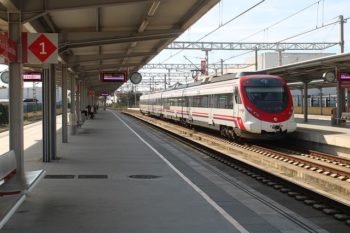English Spanish Parallel Texts – Travel Posted by Laura & Adam on Feb 15, 2022 in Language, Learning, Spanish Grammar, Spanish Vocabulary
In this lesson of our English Spanish Parallel Texts course and we are going to practice using vocabulary and phrases related to travel. Start by reading the text in Spanish below. The English translation is provided later but please try not to look at it until you have read the Spanish version various times and tried your best to understand it.
There may be some words and phrases in the text that you are unfamiliar with, but you should be aiming to capture the main essence of what is happening. There will always be words and phrases popping up in real-life situations that you have never heard before, so it is important never to get too distracted by details.
If you want to investigate some of the words you don’t know with a dictionary that would be great, please do, but do this after trying your best to understand with what you already have in your head.
Check out this video lesson with information relevant to this topic:
Spanish Text
Bea: Buenos días. Quiero un billete de tren a Sevilla por favor.
Taquilla: ¿Ida o vuelta?
Bea: Ida y vuelta.
Taquilla: Ciento veinte euros
Bea: ¿Hay un solo precio?
Taquilla: Ciento veinte euros es el coste del próximo tren a Sevilla.
Bea: ¿A qué hora sale ese tren?
Taquilla: A las nueve y media.
Bea: ¿Qué trenes hay después del tren de las nueve y media?
Taquilla: Hay uno a las once y cuarto y luego otro a las tres de la tarde. El tren de las tres es el último tren de hoy de Bilbao a Sevilla.
Bea: ¿Y los precios de esos otros dos trenes, por favor?
Taquilla: El primer tren es el más rápido y directo. El tren de las once y cuarto tarda un poco más y cuesta cien euros. El último tren tarda cuatro horas más y cuesta setenta y cinco euros.
Bea: ¿Cuántas horas tarda el tren de las nueve y media?
Taquilla: Ocho horas cincuenta y seis minutos.
Bea: ¿Puedo reservar una plaza?
Taquilla: Por supuesto.
Bea: ¿Hay algún cargo extra por reservar un asiento?
Taquilla: Sí, quince euros extra.
Bea: Está bien. Quiero un billete de ida y vuelta de Bilbao a Sevilla con plaza reservada.
Taquilla: Vale, muy bien.
Bea: ¿Hay comida disponible en el tren?
Taquilla: Sí, la hay.
Bea: ¿De qué plataforma sale el tren?
Taquilla: De la plataforma doce. Aquí está su billete.
Bea: Gracias por tu ayuda.
Taquilla: Buen viaje.
Bea: ¡Que tengas un buen día también!
English Text
Bea: Good morning. I want a train ticket to Seville please.
Ticket clerk: Round trip?
Bea: Round trip.
Ticket clerk: One hundred and twenty euros.
Bea: Is there only one price?
Ticket clerk: One hundred and twenty euros is the cost of the next train to Seville.
Bea: What time does that train leave?
Ticket clerk: At half past nine.
Bea: What trains are there after the nine thirty train?
Ticket clerk: There is one at a quarter past eleven and then another at three in the afternoon. The three o’clock train is today’s last train from Bilbao to Seville.
Bea: And the prices of those other two trains, please?
Ticket clerk: The first train is the fastest and most direct. The eleven fifteen train takes a little longer and costs a hundred euros. The last train takes four more hours and costs seventy five euros.
Bea: How many hours does the nine thirty train take?
Ticket clerk: Eight hours fifty six minutes.
Bea: Can I reserve a seat?
Ticket clerk: Of course.
Bea: Is there an extra charge to reserve a seat?
Ticket clerk: Yes, fifteen euros extra.
Bea: Okay. I want a round trip ticket from Bilbao to Seville with a reserved seat.
Ticket clerk: Ok, very good.
Bea: Is food available on the train?
Ticket clerk: Yes, there is.
Bea: What platform does the train leave from?
Ticket clerk: From platform twelve. Here’s your ticket.
Bea: Thanks for your help.
Ticket clerk: Have a good trip.
Bea: You have a nice day too!
So, how did you get on? How much did you understand of the original text before checking the translation? Please let me know in the comments section below…
Don’t worry if you didn’t understand that much, practice makes perfect! Be patient and keep reading, hearing, writing, and speaking Spanish. See you next time!

Build vocabulary, practice pronunciation, and more with Transparent Language Online. Available anytime, anywhere, on any device.




